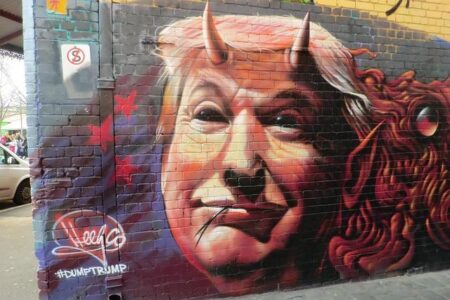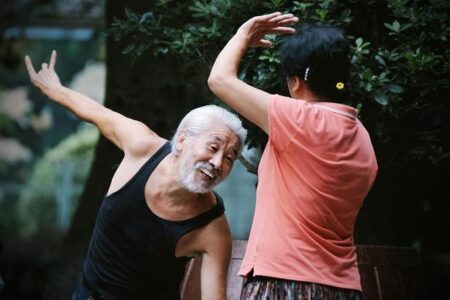Daniel Andrews’ recent photograph alongside known authoritarian leaders has ignited a fierce debate over Australia’s stance on human rights, exposing a glaring contradiction in its foreign and domestic policies. As the premier of Victoria, Andrews has long advocated for progressive values, yet this image with dictators starkly undermines Australia’s proclaimed commitment to human rights and democratic principles. Journalist Daniela Gavshon explores how this episode highlights the nation’s uneasy balancing act between political pragmatism and ethical consistency in an increasingly complex geopolitical landscape.
Daniel Andrews and the Contradictions of Australia’s Human Rights Record
Daniel Andrews’ public associations have sparked renewed debate about the integrity of Australia’s human rights stance on the world stage. His well-documented photos alongside authoritarian leaders stand in stark contrast to the nation’s proclaimed commitment to democracy and freedom. This dissonance reveals a broader issue: while Australia vocally champions human rights, its political actions often reflect a selective engagement that undermines these principles. Critics argue that such contradictions not only damage Australia’s international credibility but also send mixed messages domestically about which values are truly prioritized.
The juxtaposition is even more glaring when measured against Australia’s inconsistent policy record. Below is a summary of key areas where Australia’s rhetoric and reality diverge, demonstrating how political alliances sometimes overshadow ethical commitments:
- Trade Partnerships: Strong economic ties maintained with regimes known for systemic human rights abuses.
- Refugee Policies: Harsh detention measures contradictory to international protections.
- Diplomatic Stances: Occasional reluctance to openly criticize allies on human rights violations.
| Human Rights Issue | Australia’s Public Position | Contradictory Action |
|---|---|---|
| Freedom of Speech | Advocates vigorously | Support to regimes with media censorship |
| Indigenous Rights | Committed to reconciliation | Delayed policy reforms and inadequate funding |
| Refugee Protection | Upholds international laws | Offshore detention centres with poor conditions |
The Impact of Political Optics on Australia’s Global Image
Australia’s global reputation as a steadfast advocate for human rights has taken a visible hit following Daniel Andrews’ widely circulated photograph alongside authoritarian leaders. This image not only exposes a glaring contradiction between Australian political rhetoric and action but also fuels criticism that the nation selectively applies its human rights principles based on diplomatic convenience. The optics of such encounters are powerful, sending a message that economic or strategic interests may overshadow fundamental values, thus undermining Australia’s moral authority on the international stage.
Key consequences of this political optics misstep include:
- Damaged trust among traditional allies who champion liberal democratic values.
- Emboldenment of regimes known for oppressive practices, perceiving tacit acceptance.
- Increased domestic debate about Australia’s consistent commitment to human rights.
- Potential setbacks in international human rights coalitions where Australia previously played a leading role.
| Aspect | Before Photo | After Photo |
|---|---|---|
| Australia’s Image | Respected advocate | Questioned credibility |
| Allied Support | Strong and unified | Uneasy and skeptical |
| Human Rights Engagement | Proactive leadership | Conditional and inconsistent |
Calls for Transparent Foreign Policy Reform to Uphold Human Rights Standards
In the wake of Daniel Andrews’ widely circulated photo alongside authoritarian leaders, there has been a growing outcry demanding a comprehensive overhaul of Australia’s foreign policy. Critics argue that the current approach lacks transparency and prioritizes political expediency over fundamental human rights principles. Calls for clear accountability mechanisms and public disclosure of diplomatic engagements have intensified, urging the government to reinforce its commitment to international human rights standards rather than tacitly endorsing regimes implicated in violations.
Advocates highlight several key reforms necessary to restore public trust and credibility on the global stage:
- Implementation of mandatory human rights impact assessments before formal diplomatic or trade interactions.
- Regular parliamentary oversight of foreign policy decisions related to autocratic governments.
- Public accessibility to diplomatic visit reports and corresponding policy rationales.
- Strengthened alignment of foreign affairs with Australia’s stated commitments to freedom, democracy, and the rule of law.
| Issue | Current Status | Proposed Reform |
|---|---|---|
| Transparency | Limited public reporting | Full disclosure of diplomatic meetings |
| Oversight | Minimal parliamentary involvement | Mandatory oversight committees |
| Human rights prioritization | Often secondary to economic interests | Human rights impact assessments |
In Conclusion
As the photograph of Daniel Andrews alongside authoritarian leaders circulates, it serves as a stark illustration of the complex and often contradictory nature of Australia’s human rights stance. This image compels policymakers and the public alike to reflect critically on the nation’s diplomatic engagements and the principles it claims to uphold. Moving forward, Australia faces the challenge of reconciling its international relationships with a consistent and transparent commitment to human rights, ensuring that political pragmatism does not come at the expense of ethical integrity.




